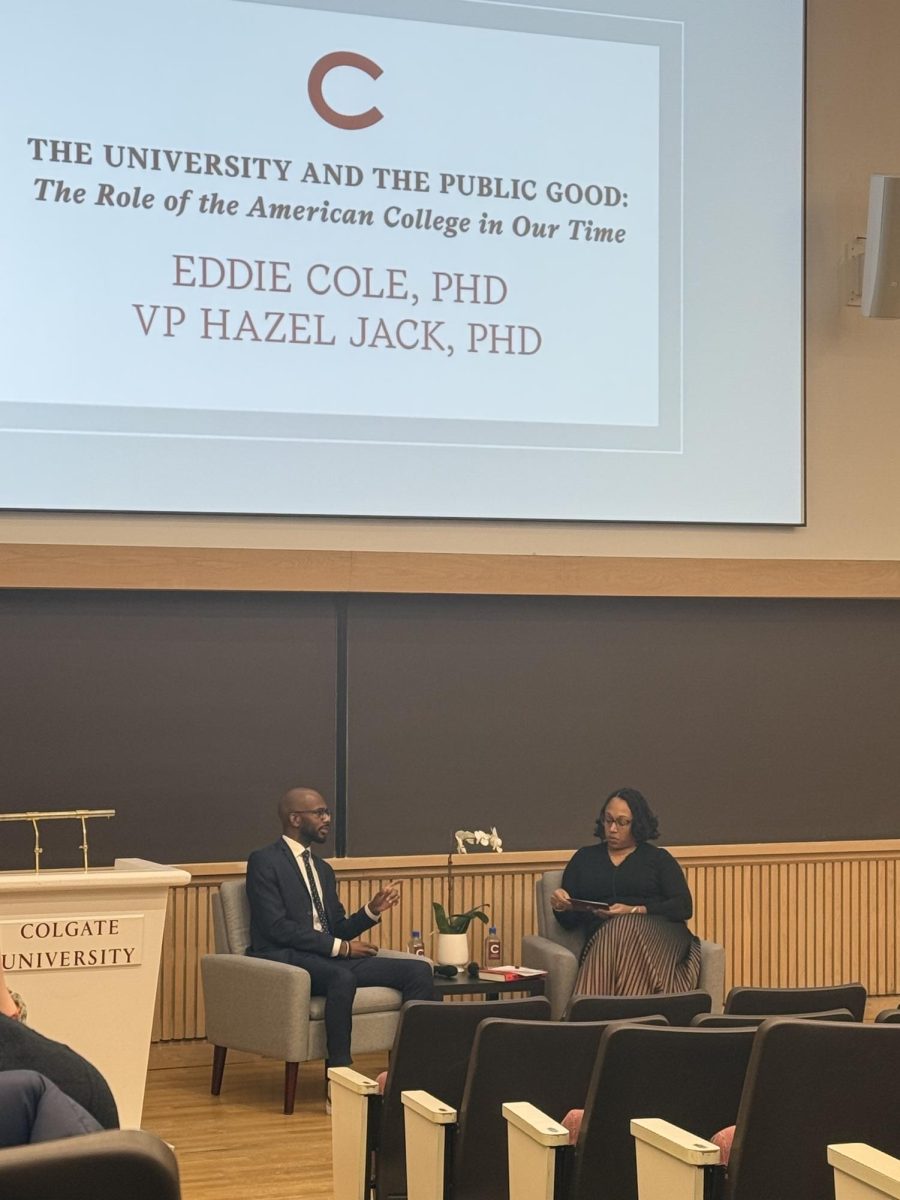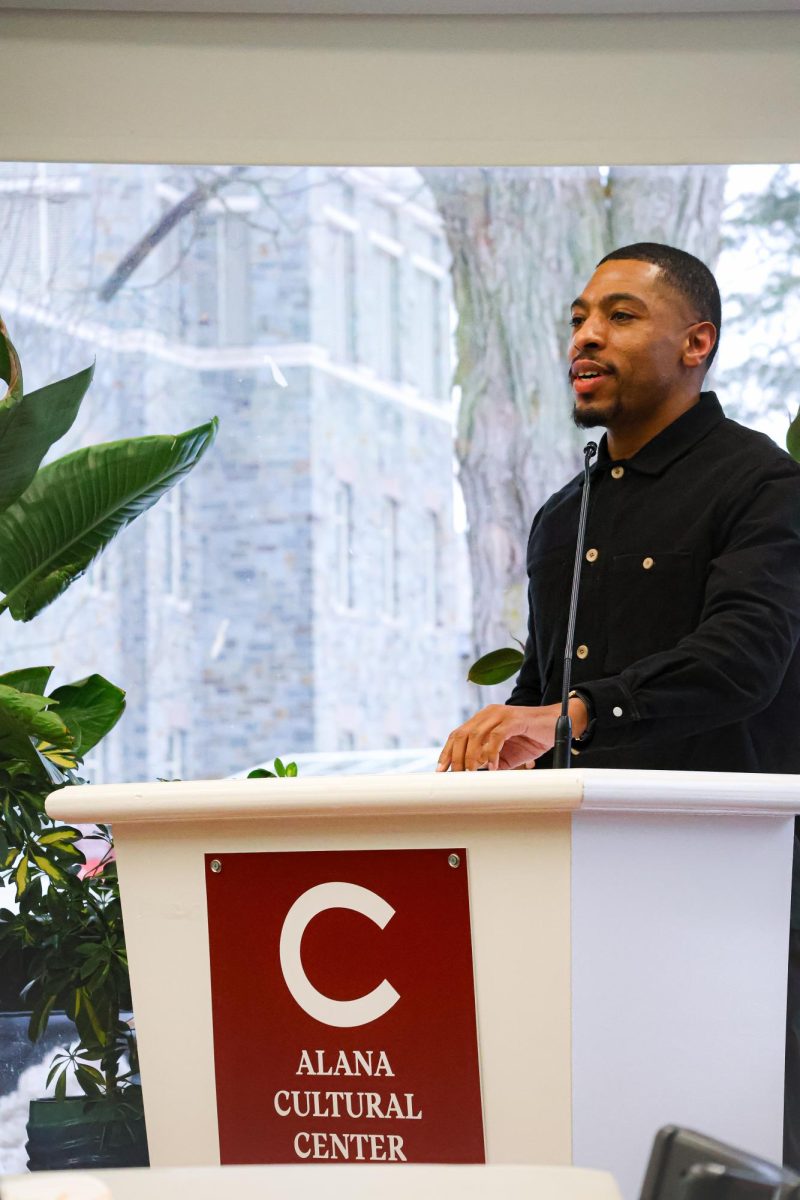Sponsored by the Office of the President, the Spring 2025 Presidential Speaker Series featured Eddie R. Cole — author of “The Campus Color Line” and professor of education and history at the University of California, Los Angeles — for a conversation with L. Hazel Jack, vice president and chief of staff to the president, in the Love Auditorium on Thursday, Feb. 20. The discussion, which unpacked the challenges facing higher education, was the second of this spring’s speaker series focusing on the role of the American university.
“The goal of this discussion is to evolve the understanding of the perception of higher education as it is now and as it is changing,” Jack said.
As a history professor himself, Cole consistently stressed the importance of maintaining archives, expressing frustration about the inadequate collaboration between university presidents and record keepers.
“Some form of record or archive is the only way to remember our parents’ or grandparents’ experiences at universities,” Cole said. “Institutions also have a social history, and that is what underscores the notion of a community. Communities have these histories.”
Cole also highlighted the importance of inviting speakers to campus to prompt open and productive conversations regardless of their opinions.
“It is hard to draw the line between free speech and hate speech,” Cole said. “But I believe any speaker should be invited as long as the attendees are given proper briefing of the perspectives they are going to encounter. Again, contextualization is key.”
Cole and Jack stressed the importance of acknowledging all sides of an issue while understanding the context of a potentially hurtful opinion. Cole used the example of affirmative action to highlight this idea.
“The original purpose of affirmative action was to prevent anti-Black sentiment in the admission process. When it was later overturned by the Supreme Court, the argument was that its purpose was to promote diversity, and in doing so, it harmed qualified applicants,” Cole said.
Amid the current political climate, Cole was underwhelmed with the amount of meetings that institution presidents have with record keepers, because understanding the social and institutional history of a university is vital to moving forward. Cole further spoke about how universities are out of touch and fail to fully understand contemporary social phenomena.
First-year Daniel McKee underscored the idea that issues surrounding the perception of higher education are not talked about enough.
“I come to a lot of these events because I’m not very well versed in the topics and believe it is important to broaden my knowledge through getting involved in different conversations,” McKee said.
Cole ended by defining the role of the university president in contemporary higher education.
“The role of presidents is to continue this conversation and to acknowledge an institution’s history,” Cole said. “Through archives, we can better understand the evolving problems surrounding higher education today.”















